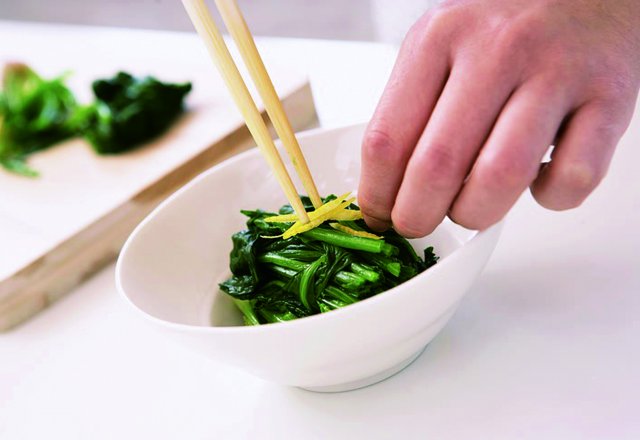
Secrets of the world's healthiest

Want to live longer, feel happier and look amazing? Adopt some habits of the healthiest people in the world... you'll look good, feel great and live longer, Jennifer Kang writes.
Want to live longer, feel happier and look amazing? Adopt some habits of the healthiest people in the world... you'll look good, feel great and live longer, Jennifer Kang writes.
If truth be told, it seems Australia’s lifestyle patterns aren’t conducive to the pursuit of longevity, happiness and anti-ageing. With our fast-paced lifestyles filled with the convenience of packaged, fast food meals, it’s no surprise that, despite being the land of plenty, Australia hasn’t been identified by scientists and demographers as a longevity hot spot.
So, where does the longevity compass point towards? According to Dan Buettner’s The Blue Zones, there are five ‘Blue Zones’, or regions where people have been found to lead active lives beyond 100 years of age. These Blue Zones include regions in Japan, Costa Rica, Greece and Italy, where a team of scientists found nine characteristics common among all of the world’s longest living people.
They were:
- Moving as naturally as possible: Walking and eliminating labour-saving devices such as power tools were seen to allow for increased physical activity.
- Having a sense of purpose: Having a clear sense of purpose and pursuing passions as well as talents were found to have an important place in the lifestyles of the long-living.
- Reversing inflammation: Inflammation caused by stress has been linked with many age-related illnesses. It was found that many of the Blue Zone residents did something to lower stress levels such as meditate or pray, thereby reversing inflammation.
- Cutting unnecessary calories: Buettner recommends eating a big breakfast and eliminating 20 per cent of your potential calorie intake through simple measures such as removing the TV from your dining area and engaging in mindful, appreciative eating practices.
- Eating a predominantly plant-based diet: A plant-based diet heavy on beans, nuts and green plants was found to be another common dietary trait among the long living. Buettner recommends eating meat in small portions, more specifically, eating a meat portion the size of a deck of cards, less than twice a week.
- Drinking wine: Drinking wine moderately was found to add years to people’s life spans. Not only was it established that wine offers many nutritional benefits through its antioxidants, but it was also found that many of the Blue Zone residents indulged in a glass of wine in the company of others, which optimised social interaction.
- Living with family: Living with family and leading a family-oriented lifestyle was found to contribute to long life.
- Feeling a sense of spiritual connection: Findings indicated that people who engage with their faith community four times a week lived an extra four to fourteen years.
- Having a supportive friendship network: Buettner claims that surrounding yourself with those whose company you enjoy as well as those who are healthy minded, can add years to your life.
SECRETS FROM AROUND THE WORLD
JAPAN
The islands of Okinawa, Japan, were found to be home to some of the longest living on Earth. Elderly island residents are said to live as though they are 30 years younger than their real age. However, even outside of the islands, Japan boasts one of the highest records of average longevity. Here are some of their secrets to looking and staying young.
Eat well
The Japanese diet is generally low in fat and very nutritious. Vegetables and fruit are included in their daily diets and food is consumed in small, regular meals. Variety in food choices is also emphasised and an array of Asian green vegies such as bok choy and kale as well as seafood such as salmon, tuna and seaweed are incorporated into everyday eating habits. The Japanese are also the world’s biggest soy product consumers. Natto, fermented soy beans, is often mixed in with rice, aiding digestion, even having a cholesterol-lowering effect. They also practise the eating philosophy of ‘hara hachi bumme’, which encourages eating until you’re 80 per cent full. This means the Japanese often consume less than Westerners, decreasing their risk of suffering from weight-related illnesses and allowing them to maintain a healthy weight range.
Be happy
What has been found in Okinawa is that residents benefited from the polite, supportive social networks that Japan is well known for. Okinawa residents were seen to take care of each other and strong supportive connections were observed among social groups.
A positive attitude towards life was also seen as an important factor to their longevity – elderly members of their community were encouraged to lead active lives. Tai chi, respiration exercises and gardening were seen to reduce stress levels and allow the elderly to feel a greater sense of purpose and wellbeing.
Look good
The secret to Japanese women’s porcelain skin seems to lie in rice water. Many Japanese women wash their faces with the water they wash or soak their rice in, giving them a pale, whitened and brightened complexion. The Japanese claim that it helps preserve their youth by camouflaging pigmentation and dark spots. It’s also said to reduce the appearance of dark circles around the eyes, whiten blemishes and calm down red, inflamed patches on the skin.
ITALY
Italy boasts not only culinary delights, but also many secrets to longevity.
Eat well
Italians live on a Mediterranean diet that includes fruits, vegetables, grains, legumes and beans, nuts, seeds and lean proteins. Wine is also included in day-to-day diets, and usually enjoyed in the company of others – consequently maximising social interaction.
There is also an emphasis placed on fresh, local produce and of course, tomatoes, which are a rich source of antioxidants, and olive oil, which is packed with healthy fats and good cholesterol-boosters.
Be happy
The Italians surround themselves in the company of their rich network of family and friends. Close bonding and physical affection are important in this culture, contributing to happiness and a sense of social connection.
Studies show that receiving gestures and signs of affections can do wonders for your happiness levels, and the Italians are perhaps the world's best cheek-kissers and caressers!
Look good
In Italy, olive oil is not only consumed in vast amounts, but it’s also used on the skin. Traditionally, many Italian women would use a part lemon juice, part olive oil mixture to apply to the skin to soften, smooth and brighten the complexion.
LOMA LINDA
Unlike other Blue Zones, the Loma Linda region in California is unique in that the rest of the country the city is located in – America – does not follow the general dietary and lifestyle principles of this group. Researchers studied a group of Seventh-day Adventists in Loma Linda who have been identified as those living in a Blue Zone and found they were among the longest living, with their diets and sense of community contributing to their longevity.
Eat well
The Seventh-day Adventist community in Loma Linda are vegetarians, once again highlighting the importance of a predominantly plant-based diet. A plant-based diet can also ensure that you’re not consuming excess salt or fat, which are often found in meat meals.
Be happy
A large focus is placed on Sabbath, a weekly rest day, and spending time developing religious faith and relationships with family. A rest day is also particularly important as it ensures you can escape from the business and chaos of everyday tasks.
Look good
Many of the Seventh-day Adventist community choose natural over processed. The same can be said of beauty products – ensure you’re using natural, Mother Nature-approved offerings that will prevent your skin from absorbing chemicals and other hidden nasties contained in cosmetic formulas to preserve the youth in your skin.


